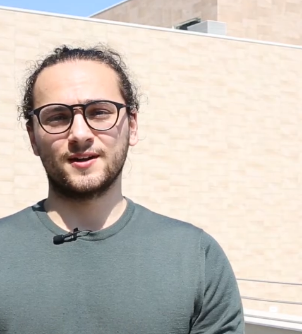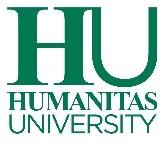Studying Medicine at Humanitas University means you will have day-to-day clinical contact with both leading hospital and group of doctors, researchers and healthcare professionls. The University fosters the conditions necessary for the education and growth of a professional – the medical research doctor – who can guarantee continuity between the laboratory and clinical practice (bench-to-bedside) and thrive in the clinical and research areas in Italy or overseas.


Education and training are fully integrated with Humanitas Hospital and the Scientific Research Center. From the very first year of the Medicine and Surgery Degree Course, theoretical and practical skills can be acquired thanks to the multidisciplinary modules combined with practical training carried out under the guidance of professors and researchers with international experience and more than 150 doctors, who also work as tutors and members of the teaching community. Simulation also plays a fundamental role in medical training: our Mario Luzzatto Simulation Center is a 2000 square metres state-of-the-art Simulation Lab, one of the most technologically advanced in Europe which complements the academic components in training healthcare professionals. In the Simulation Center students have the opportunity to integrate theoretical knowledge with practical skills, thanks to its emergency room, operating theatres, ambulatories, clinical and surgical skill rooms and multimedia booths.
From the third year, students will start their clinical training at Humanitas Research Hospitals under the supervision of specialised tutors, who follow undergraduates through their clinical practice. Students can also join interdisciplinary programs dedicated to biomedical research, featuring interactive teaching activities and laboratory experience to enable active participation in scientific research.
Future doctors can also benefit from a study period abroad, by means of travel grants and the Erasmus programme.
Secondary School Diploma or attending the last year of the secondary education; if the school system provides for 11 or 10 years of schooling, the title is valid when integrated with 1 or 2 years of university/foundation year/training course;
For candidates holding an IB Diploma: 24 points in 6 subjects (12 points out of 24 in higher-level);
For candidates holding a US Diploma: 3 Aps in science-related subjects with score above or equal to 3 / High School Diploma and one year of college;
For candidates holding a UK Diploma: GCE or IGCE with 3 A-levels in science related subjects / Cambridge Pre-U.
On the completion of the 6-year course in Medicine and Surgery, students obtain a master degree recognised all over Europe and in many non-Eu countries; therefore students are able to make their way to any countries of the world in order to continue with their medical path. Humanitas University offers 21 Speciality Schools with an extensive network of hospitals and centers of the Humanitas Group where to spend part of the training.